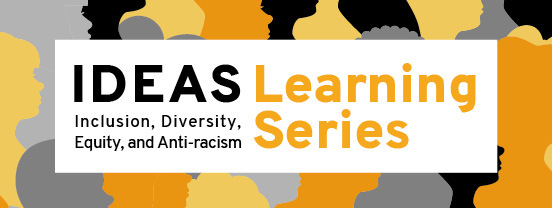
Catalog Advanced Search
-
Contains 2 Component(s) Includes a Live Web Event on 01/22/2025 at 2:00 PM (EST)
Join the Holistic Student Support working group for an insightful hour-long webinar where we dive into the critical juncture of Transition to Residency.
Join the Holistic Student Support working group for an insightful hour-long webinar where we dive into the critical juncture of Transition to Residency, which we define as students matching to a program and begin their transition to residency. During this webinar, we will explore challenges and innovations associated with the following areas:
- Residency Program Overview
- Financial Preparation for Residency
- Wellness and Emotional Support
- Building Systems, Processes and Skills to Support Residency Application and Interview Preparation
This interactive session aims to foster collaboration between student affairs and educational affairs, inspire innovation, and strengthen the support systems for our incoming medical students. This webinar is a part of a year-long series on Holistic Student Support. To see our introductory webinar, follow this link.
-
Register
- User - Free!
- More Information
-
Contains 2 Component(s) Includes a Live Web Event on 01/13/2025 at 3:00 PM (EST)
In this session, the skills of scholarly writing will be explored through the lens of analyzing a manuscript that was accepted for publication. The participants will examine review criteria that are used by healthcare education journals and apply them to a sample manuscript. In discussing scholarly writing the participants will make a decision about the type of feedback they would give to the authors of the sample paper.
In this session, the skills of scholarly writing will be explored through the lens of analyzing a manuscript that was accepted for publication. The participants will examine review criteria that are used by healthcare education journals and apply them to a sample manuscript. In discussing scholarly writing the participants will make a decision about the type of feedback they would give to the authors of the sample paper.
At the end of this session, participants will be able to:
- Identify the components of a scholarly publication;
- Discuss how to frame a problem statement;
- Identify an effective Research Question;
- Discuss whether the Design/method is appropriate to the question;
- Discuss whether the authors have applied the best data collection methods to the appropriate sample;
- Understand the Results section and how to present results in a clear manner.
Recordings will be made available for viewing following the completion of each workshop. Viewing of recordings may not be substituted for participation in live workshops.
This workshop is a part of the MERC Virtual Workshop 2024 - Series 4.
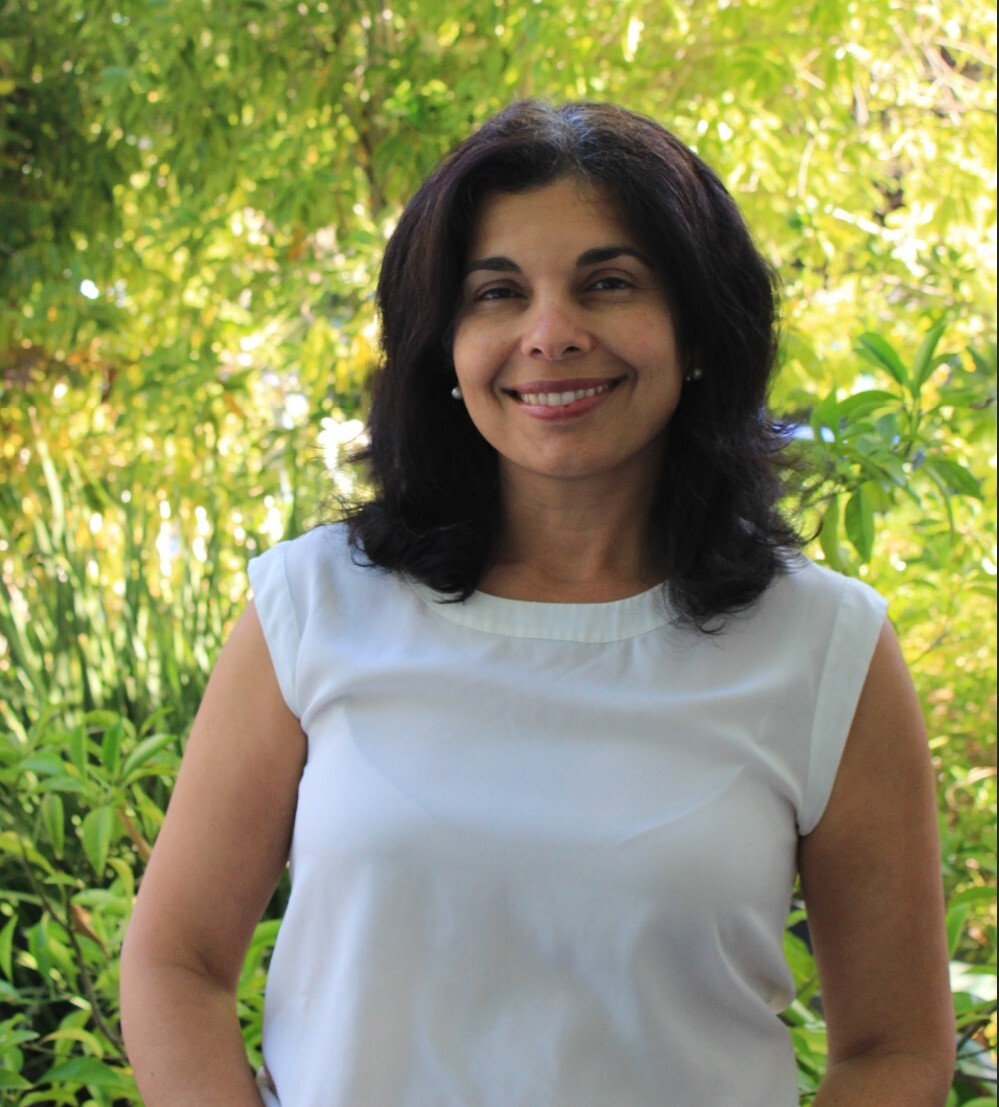
Arianne Tehrani
Arianne Teherani, PhD is Professor of Medicine, Director of Program Evaluation and Education Continuous Quality Improvement for UCSF School of Medicine, and Founding Co-Director University of California, Center for Climate Health and Equity. Arianne’s research has informed global conversations, research, and policies on equity and social justice in education and education for climate change and health. Arianne’s research into how educational disparities are perpetuated by learning environment practices has shifted how medical schools thinks about and act on inequities. Her research identifies and addresses the role of accepted assessment and learning environment practices in perpetuating disparities. She has led studies on interventions aimed at creating equity and she has led the development of novel evidence-based model for equitable assessment in the clinical setting. Additionally, Arianne’s research has positioned education as a core solution to the climate change and health crisis and has established globally utilized competencies, knowledge, and practice. She has examined the outcomes of successful endeavors to train practicing clinicians to educate their students and patients about climate-health impacts and climate justice. Arianne has published over 130 peer-reviewed papers and book chapters and work has been featured in venues such as National Public Radio, KTVU, Market Watch, and the Huffington Post. She was the recipient of the UCSF Faculty Sustainability Award and the UC Sustainability Champion Award. Arianne was named the Faculty Climate Action Champion - an award given to one faculty member at each University of California campus in recognition of their contribution to the mission of sustainability.
-
Register
- User - $125
- More Information
-
Contains 2 Component(s) Includes a Live Web Event on 01/06/2025 at 3:00 PM (EST)
This workshop helps participants prepare their data for analysis and be able to answer questions about their data that a statistician will likely ask when providing consultation.
This workshop helps participants prepare their data for analysis and be able to answer questions about their data that a statistician will likely ask when providing consultation.
At the end of the workshop the participants will be able to:
- Collect data;
- Set up data files;
- Enter data into data files;
- Check and clean data prior to analysis;
- Compare my sample to my population;
- Address statistical issues discussed during consultation with a statistician (e.g., Type I & II errors, power, effect sizes).
Recordings will be made available for viewing following the completion of each workshop. Viewing of recordings may not be substituted for participation in live workshops.
This workshop is a part of the MERC Virtual Workshop 2024 - Series 4.

Chris Mooney
Christopher J. Mooney, PhD, MPH, MA is Assistant Professor in the Division Of General Medicine and holds joint appointments in the Departments of Health Humanities and Bioethics and Public Health Sciences at the University of Rochester. He is Director of Assessment and Director of the Medical Education Pathway in the School of Medicine and Dentistry, and Director of Education Research and Scholarship in the Department of Medicine. Dr. Mooney is chair of the NEGEA Medical Education Scholarship Research and Evaluation (MESRE) Section and Chair of the AAMC’s Medical Education Research Certificate (MERC) program. In these roles, Dr. Mooney collaborates with teams of educators, learners, scientists, and clinicians to study education and health outcomes.
-
Register
- User - $125
- More Information
-
Contains 2 Component(s) Includes a Live Web Event on 12/17/2024 at 1:00 PM (EST)
Panelists from AMCs will discuss the ways in which recruitment and retention have impacted their institutions and how they are addressing their challenges through both compensation and strategic workforce planning. We anticipate a highly engaging and robust discussion, given the overarching role that this topic has on compensation and strategy.
Faculty physician recruitment and retention continues to be one of the top challenges facing academic medical centers (AMCs). The AAMC has partnered once again with SullivanCotter, a nationally recognized consulting firm with deep expertise in the AMC space, to conduct a survey of AAMC-member institutions that was focused specifically on faculty physician recruitment and retention. During this webinar, SullivanCotter will present several findings from this survey, as well as provide industry perspectives and insights, and an overview of the changing workforce dynamics impacting physician recruitment, retention, and compensation strategy.
Panelists from AMCs will discuss the ways in which recruitment and retention have impacted their institutions and how they are addressing their challenges through both compensation and strategic workforce planning. We anticipate a highly engaging and robust discussion, given the overarching role that this topic has on compensation and strategy.
This webinar is hosted by the Group on Business Affairs (GBA) and the Group on Faculty Practice (GFP), and open to anyone working at an AAMC member institution.
Please use Google Chrome, Firefox, Edge or Safari on this registration site. Problems with registration? Questions about webinar registration can be directed to aamc@commpartners.com. Other questions can be directed to Shawn Rosen-Holtzman.

Penny Castellano, MD, FACOG (Moderator)
President, Physician Division
Professor & Interim Chair, Gyn/Ob Emory Healthcare
Emory University School of MedicinePenny Castellano was appointed President of the Physician Division and interim Director of the Emory Clinic in December 2023. Penny has strategic and operational oversight of all Emory Healthcare (EHC) physician practices, inclusive of Emory Clinic and Emory Specialty Associates. She also serves as the physician liaison between EHC and the School of Medicine and assumes all responsibilities as the Chief Medical Officer. Dr. Castellano has been a faculty member of the Emory University School of Medicine since 1990. She previously served as the Associate Clinic Director and Chief Medical Officer for the Emory Clinic faculty practice and Emory Specialty Associates, the employed non-faculty practice plan for EHC. She is also professor, and Interim Chair for the Emory Department of Gynecology and Obstetrics. She has held medical executive positions in Emory Clinic and Emory Healthcare for over 20 years and has served on a multitude of institutional committees and councils, co-chairing the Emory Healthcare Diabetes Council and the Emory Healthcare Opioid Stewardship Council recently. She is an active AAMC constituent and currently serves on the Steering Committee for the Group on Faculty Practice. She has been a member of several teams for Vizient and formerly UHC, including groups on academic practice plans, quality, rankings, a data and analytics committee, and is incoming chair for the Medical Executive Network Advisory Committee.

Bob Madden
Principal, Physician Workforce Practice
SullivanCotterBob Madden is a Principal in SullivanCotter’s Physician Workforce Practice. Bob joined SullivanCotter in 2011 and has over 12 years of experience designing physician compensation programs, analyzing physician compensation arrangements and evaluating physician practices. Bob’s experience includes:
• Working with Academic Medical Centers (AMCs) to assess the alignment between funds flow, work effort allocations, benchmarking sources, compensation oversight, and compensation plan mechanics in support of all missions and strategic objectives.
• Conducting research and surveys focused on AMCs, covering topics such as recruitment and retention, work effort expectations, and pay practices.
• Developing physician compensation programs that incorporate a combination of volume and value components that align with organizations’ strategic objectives.
• Facilitating education sessions, webinars, and podcasts for physicians, administrators and executives that cover compensation design and fair market value methodologies.
• Writing fair market value opinions on physician compensation arrangements.
• Evaluating and developing on-call pay programs that recognize multiple dimensions of burden.
• Performing due diligence analyses for health care related transactions.
• Developing interactive tools that evaluate compensation and productivity alignment.
• Assisting clients in the process of migrating to new physician fee schedules for the purposes of compensation plan administration.Bob received his Bachelor of Science degree in business administration, graduating Summa Cum Laude from the University of Pittsburgh.
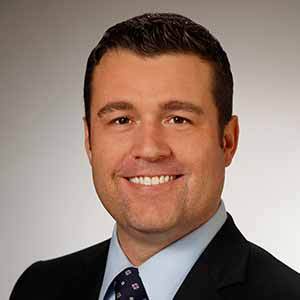
Jason Tackett, MBA, MS
Managing Principal, Physician Workforce Solutions
SullivanCotterJason Tackett is a Managing Principal at SullivanCotter and serves as a leader in the development of physician workforce solutions with expertise in compensation design and evaluation. He assists health care organizations in aligning compensation programs with emerging market practices in support of critical strategic objectives. Leveraging 15 years of consulting experience, he partners with large health systems and academic medical centers on physician compensation evaluation, design, and fair market value assessments. He has worked with more than 100 health care organizations, including hospitals, health systems, physician faculty practice plans, academic medical centers, pediatric hospitals, and large physician groups. Prior to joining the firm, Jason spent seven years at Ford Motor Company holding various leadership positions in engineering and marketing. Jason received his Master of Business Administration degree and a Master of Science in engineering degree from the University of Michigan. He received his undergraduate degree in mechanical engineering, with distinction, from the University of Michigan-Dearborn.

Bess Wildman, MBA
Vice Dean of Academic Administration and Finance, University of Chicago Biological Sciences Division
Pritzker School of MedicineElizabeth “Bess” Wildman is a healthcare executive with over 27 years of experience in hospital, practice plan, and School of Medicine administration, finance, and operations. She currently serves as the Vice Dean of Academic Administration and Finance for the University of Chicago Biological Sciences Division. She has previously worked at the University of Virginia, Wake Forest Baptist Medical Center, University of California San Francisco, and Vanderbilt University Medical Center. Bess has extensive experience partnering with physician leaders to help create and transform teams, lead change, drive process improvement, operational efficiency and mentor developing talent. She has served in key leadership roles for several professional societies including Medical Group Management Association (MGMA), the AAMC’s Group on Business Affairs (GBA), Association of Academic Surgical Administrators (AASA), and Association of Academic Internal Medicine (AAIM). She is currently on the AAMC’s Group on Faculty Practice Steering Committee. Bess has a bachelor’s degree from the University of Virginia and a master’s in business administration from Wake Forest.

Atif Zaman, MD, MPH
Senior Vice President & Chief Clinical Officer
Senior Associate Dean for Clinical & Faculty Affairs
OHSU Health & OHSU School of MedicineAtif Zaman, MD, MPH, received his BS in Biomedical Engineering from Boston University in 1987, his MD from Tufts University, and his MPH from Oregon Health and Science University in 2000. He is currently Professor of Medicine in the Division of Gastroenterology and Hepatology and in the Department of Public Health and Preventive Medicine at Oregon Health and Science University (OHSU). He is the Senior Associate Dean for Clinical and Faculty Affairs in the School of Medicine and Senior Vice President and Chief Clinical Officer of OHSU Health.
-
Register
- User - Free!
- More Information
-
Register
-
Contains 2 Component(s) Includes a Live Web Event on 12/16/2024 at 3:00 PM (EST)
This workshop is intended for physicians and generalists in medical education, as well as faculty and staff involved in student affairs, who wish to develop perspectives and skills for collecting qualitative data, such as data from focus group discussions, interviews, observation field notes, and responses to open-ended questions—used in admissions processes, program development, curriculum evaluation, needs assessments, performance evaluation, and various scholarship and research applications.
This workshop is intended for physicians and generalists in medical education, as well as faculty and staff involved in student affairs, who wish to develop perspectives and skills for collecting qualitative data, such as data from focus group discussions, interviews, observation field notes, and responses to open-ended questions—used in admissions processes, program development, curriculum evaluation, needs assessments, performance evaluation, and various scholarship and research applications.
After participating in this workshop, learners will be able to:
- Demonstrate applied knowledge of the appropriate selection, use, and standards for rigor of some common methods for collection of qualitative data;
- Generate research questions appropriate for qualitative studies and choose appropriate data collection methods;
- Demonstrate applied knowledge of approaches to achieve rigor in the design of qualitative studies and collection of qualitative data;
- Demonstrate essential skills required for conducting focus groups
Recordings will be made available for viewing following the completion of each workshop. Viewing of recordings may not be substituted for participation in live workshops.
This workshop is a part of the MERC Virtual Workshop 2024 - Series 4.

Katie Huggett
Dr. Katie Huggett is the Robert Larner Professor in Medical Education, Director of the Teaching Academy, and Assistant Dean at the University of Vermont Larner College of Medicine. As Director of the Teaching Academy, Dr. Huggett leads and develops faculty development programs to support inclusive teaching, assessment, curricular design, mentoring, and educational leadership. She leads medical education research activities and works with faculty to foster educational scholarship. Her research and publications address academic program quality, curricular innovation, interprofessional education, and mentoring. She is co-editor of the book, An Introduction to Medical Teaching: The Foundations of Curriculum Design, Delivery, and Assessment, now in its third edition.
-
Register
- User - $125
- More Information
-
Contains 2 Component(s) Includes a Live Web Event on 12/11/2024 at 1:00 PM (EST)
This webinar will showcase promising programs from academic medical centers that have established regular and embedded allyship efforts at their institutions.
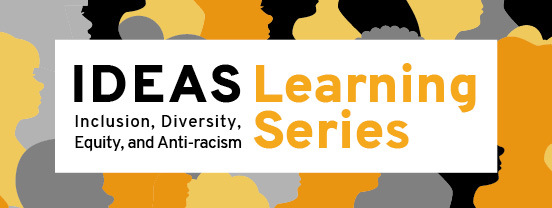
In the third and final webinar of this series, speakers will share insights into how to institutionalize allyship efforts at your institution. This webinar will showcase promising programs from academic medical centers that have established regular and embedded allyship efforts at their institutions.
About IDEAS
The AAMC IDEAS (Inclusion, Diversity, Equity, Anti-racism) Learning Series provides actionable information about DEI strategies that you can put into practice to become a more effective and successful leader, educator, and member of the academic medicine community.
Andreá N. Williams, PhD (she/her/hers)
Interim Associate Vice Provost for Diversity and Inclusion
Director, The Women’s Place
The Ohio State UniversityAndreá N. Williams is director of The Women’s Place. Since joining The Ohio State University in 2006, Dr. Williams has served widely on college and university committees and contributed to initiatives dedicated to diversity, inclusion and women’s advancement. She was recognized with the university’s Distinguished Diversity Enhancement Award in 2016. Dr. Williams is also an associate professor in the Department of English, specializing in African American and nineteenth-century American literature. As a literary historian, she is drawn to questions about the social and material conditions that historically have enabled or inhibited African Americans in producing literature and art. She is the author of Dividing Lines: Class Anxiety and Postbellum Black Fiction (2013).
Dr. Williams’ current work traces the lives and literature of unmarried African American women who helped to cultivate singleness as a viable long-term lifestyle in the twentieth century. Her research has been awarded grants and fellowships from Rutgers University, the National Humanities Center, and the American Council of Learned Societies (ACLS). Dr. Williams is an alumna of Spelman College, a historically black women’s college in Atlanta, and earned her PhD at the University of North Carolina at Chapel Hill.
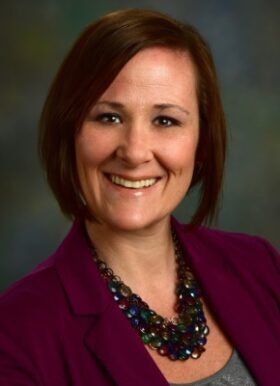
Erin Stampp, MPP (she/her/hers)
Director, Programming and Professional Development
Office of Diversity, Equity and Inclusion
Washington University School of MedicineErin Stampp has been serving communities as a diversity and inclusion practitioner for over 15 years in both the U.S. and internationally. She is passionate about achieving equity in outcomes for all individuals and has seen that diversity and inclusion efforts play a key role in the larger work of addressing health disparities and other inequities. Ms. Stampp received a Bachelor of Science degree in Sociology with a Minor in Women Studies from Western Illinois University and then joined the United States Peace Corps where she served in Port Antonio, Jamaica for 3 years. After returning to the U.S., she earned a Masters of Public Policy and a Certificate in Non-Profit Management from the University of Maryland, Baltimore County, where she also designed civic engagement and diversity learning opportunities for students.
After positions with Baltimore City, Missouri University of Science and Technology, and the Center for Diversity and Cultural Competence at Barnes Jewish Hospital, Ms. Stampp joined the Washington University School of Medicine as a Diversity and Inclusion Leader in May of 2017. She also serves the St. Louis Region as a training specialist with the Anti-Defamation League to provide K-12 anti-bias education. She participates in the Forward Through Ferguson Racial Equity Roundtable and is an ambassador with Alive and Well STL.
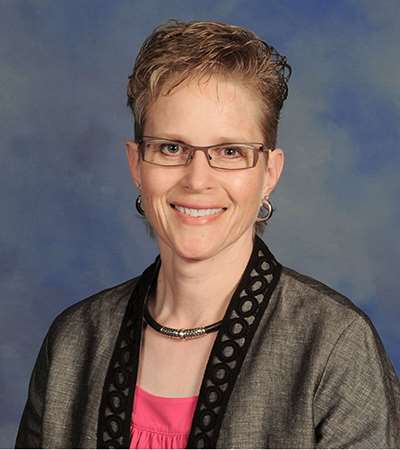
Libby Ellinas, MD, MS
Professor of Anesthesiology
Associate Dean for Women’s Leadership
Director, Center for the Advancement of Women in Science and Medicine (AWSM)
Medical College of WisconsinDr. Ellinas is Professor of Anesthesiology and joined Medical College of Wisconsin (MCW) in 2000, specializing in Obstetric Anesthesiology. She has held clinical roles as diverse as Director of OB Anesthesia and Program Director for MCW’s OB Anesthesia Fellowship. As Associate Dean for Women’s Leadership, Dr. Ellinas advances the MCW community as it becomes a destination of choice for women in academic medicine, and assists the recruitment, retention, advancement, and leadership achievements of women faculty.
With MCW Provost Joseph Kerschner, Dr. Ellinas developed and initiated a plan for a women’s leadership center at MCW in conjunction with MCW’s Council for Women’s Advocacy and launched the MCW Center for the Advancement of Women in Science and Medicine (AWSM) as its inaugural director in 2018. As Center Director, Dr. Ellinas leads AWSM in its efforts to create an environment that allows all genders to grow and thrive in the health sciences. AWSM focuses its efforts particularly on culture initiatives through its IWill, WeWill, and MCWill goals and Women’s Leadership through its Women’s Leadership Learning Collaborative. Dr. Ellinas is currently chair of the AAMC Group on Women in Medicine and Science (GWIMS) and is honored to serve the women of academic medical centers in this role.
-
Register
- User - Free!
- More Information
-
Register
-
Contains 1 Component(s) Includes a Live Web Event on 12/10/2024 at 2:00 PM (EST)
Sign up to kickstart your exam preparation today!
Preparing for the MCAT® exam? Join us at our next webinar for an overview of the AAMC MCAT Official Prep resources and get tips on how to use them to create an effective study plan. Sign up to kickstart your exam preparation today!
Lauren Bauser
Director of MCAT PreparationLauren Vergara
MCAT Product Manager-
Register
- User - Free!
- More Information
-
Register
-
Contains 2 Component(s) Includes a Live Web Event on 12/09/2024 at 3:00 PM (EST)
This workshop introduces participants to fundamental principles of educational program evaluation, and provides participants with a strategy for developing an evaluation plan.
This workshop introduces participants to fundamental principles of educational program evaluation, and provides participants with a strategy for developing an evaluation plan.
After participating in this workshop, learners will be able to:
- Describe program evaluation and its purposes;
- Identify barriers to program evaluation;
- Identify models used in evaluation;
- Describe the steps of an evaluation;
- Develop an evaluation plan.
Recordings will be made available for viewing following the completion of each workshop. Viewing of recordings may not be substituted for participation in live workshops.
This workshop is a part of the MERC Virtual Workshop Series 2024 - Series 4.
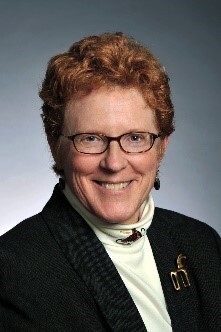
Carol Hodgson
Carol Hodgson, MS, Ph.D. is an Associate Professor with tenure in Pediatrics, the former J. Alan Gilbert Chair in Medical Education Research, Director of the IDEAS Office, and directs the Teaching Scholars Program at the University of Alberta, Faculty of Medicine and Dentistry and the Teaching Scholars Program in the Alberta Institute with Wenzhou Medical University. She received a Master of Science degree in biochemistry from the University of California, Riverside and a doctorate in Education at UCLA. Before entering the field of medical education in 1992, she was a researcher in preventive medicine at the University of Southern California. She has been an Assessor for the World Federation for Medical Education since 2013. Dr. Hodgson actively mentors numerous faculty members and residents. She is an expert in curriculum design, program evaluation, assessment, health professions educational research, faculty development, and medical school accreditation. Dr. Hodgson’s research focuses in the areas of professionalism, program evaluation, cancer education, and training for better care of people with disabilities.
-
Register
- User - $125
- More Information
-
Contains 2 Component(s) Includes a Live Web Event on 12/02/2024 at 3:00 PM (EST)
This workshop introduces participants to the principles of score reliability and validity, using a combination of didactics and review of medical education research projects. The workshop is divided into two parts with group exercises designed to reinforce understanding of the main principles.
This workshop introduces participants to the principles of score reliability and validity, using a combination of didactics and review of medical education research projects. The workshop is divided into two parts with group exercises designed to reinforce understanding of the main principles.
After participating in this workshop, learners will be able to:
- Identify three types of reliability (inter-rater, test-retest, and internal consistency);
- Match types of reliability with appropriate statistical measures;
- Describe the relationship between reliability and validity;
- Describe multiple forms of evidence for validity;
- Select an approach to reliability and validity assessment for a particular study.
Recordings will be made available for viewing following the completion of each workshop. Viewing of recordings may not be substituted for participation in live workshops.
This workshop is a part of the MERC Virtual Workshop 2024 - Series 4.
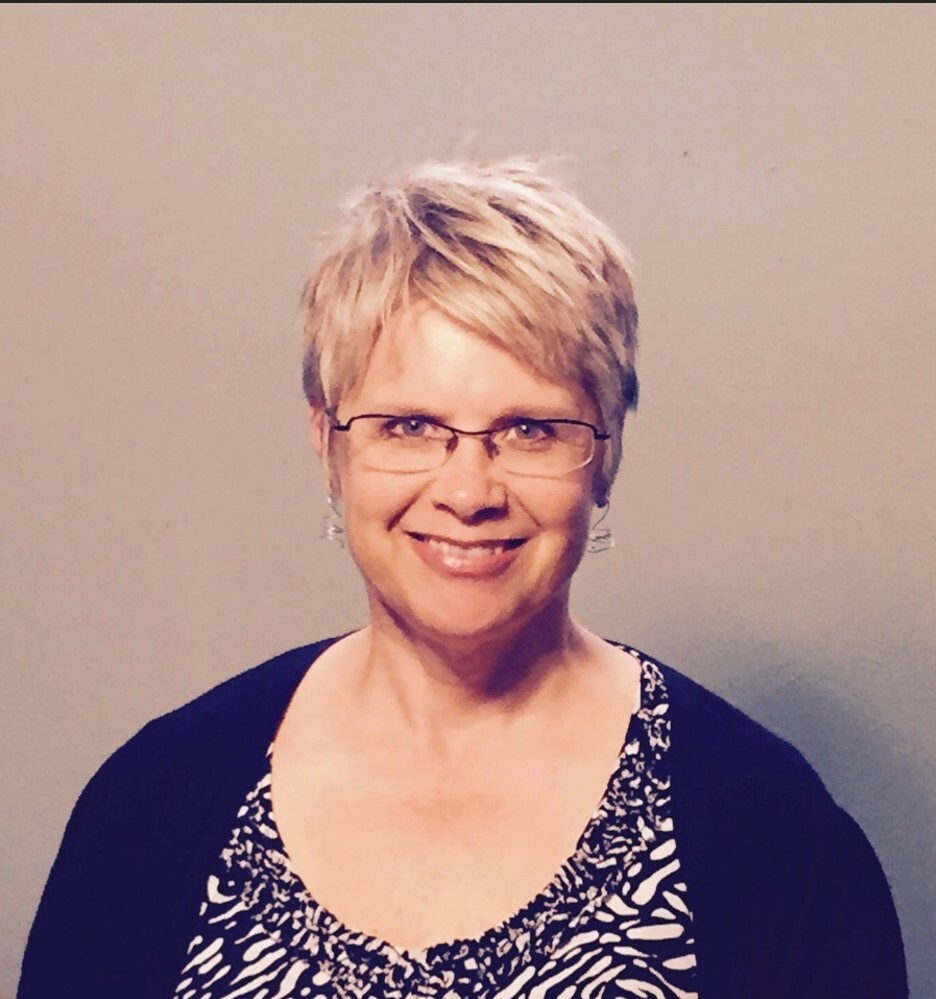
Cayla Teal
Dr. Cayla R. Teal is the Associate Dean for Assessment and Evaluation and an Education Associate Professor in the Department of Population Health at the University of Kansas School of Medicine (KUSOM). Dr. Teal received her B.A. degree in Chemistry from William Jewell College and her M.A. and Ph.D. in Community/Clinical Psychology from Wichita State University, with emphases in applied research methods and psychometrics. She completed a post-doctoral fellowship in Health Services Research at the Center of Innovation in Quality, Effectiveness and Safety at the Michael E. DeBakey Houston VA Medical Center. She served as the Director of Educational Evaluation and Research at Baylor College of Medicine and an Assistant Dean for Academic Affairs and Associate Dean for Evaluation and Assessment at Texas A&M College of Medicine prior to coming to KUSOM. Dr. Teal is responsible for the assessment of student performance in and program evaluation of the KUSOM’s curriculum and a member of its continuous quality improvement team. She is a mixed-methods medical education researcher, an Associate Editor for Medical Education Online, a Deputy Editor for Teaching and Learning in Medicine, teaching faculty for AAMC Medical Education Research Certificate (MERC) program, and a 2022 AMA Scholar in Health Systems Science. Dr. Teal recently completed her two-year term as the national chair for the Medical Education Scholarship, Research and Evaluation (MESRE) section at the AAMC’s Group on Educational Affairs (GEA) and serves as the Treasurer for the Society of Directors of Research in Medical Education (SDRME).
-
Register
- User - $125
- More Information
-
Contains 2 Component(s) Includes a Live Web Event on 11/25/2024 at 3:00 PM (EST)
This workshop will provide some basic principles in questionnaire/survey design and give workshop participants an opportunity for hands-on experience designing a questionnaire.
This workshop will provide some basic principles in questionnaire/survey design and give workshop participants an opportunity for hands-on experience designing a questionnaire.
Following participating in this workshop, learners will be able to:
- Design a blueprint for a survey/questionnaire appropriate to their own application;
- Construct and edit questions to avoid common problems in wording and framing;
- Select an appropriate response format from a menu of alternatives;
- Design the overall format of the survey/questionnaire to facilitate data management and analysis.
Recordings will be made available for viewing following the completion of each workshop. Viewing of recordings may not be substituted for participation in live workshops.
This workshop is a part of the MERC Virtual Workshop 2024 - Series 4.

David Cook
David Cook is Professor of Medicine and Medical Education in the Mayo Clinic College of Medicine; Director of Education Science in the Mayo Office of Applied Scholarship and Education Science; Research Chair for the Mayo Multidisciplinary Simulation Center; a practicing physician specializing in the diagnosis and treatment of complex medicine problems; a Deputy Editor for the journal Medical Education; and an Editorial board member for the journal Simulation in Healthcare. He received a B.S. in chemistry from Utah State University and an M.D. from the Johns Hopkins University School of Medicine. He then came to the Mayo Clinic for residency in Internal Medicine and a fellowship in General Internal Medicine, and joined the staff in 2004. He also completed a Master degree in Health Professions Education through the University of Illinois at Chicago - Department of Medical Education.
Dr. Cook's research interests include the theory and design of online learning and other educational technologies, the quality of medical education research methods and reporting, clinical reasoning, and assessment of clinical performance. He has developed and studied multiple online courses for residents and medical students, conducted numerous systematic reviews, and published over 230 journal articles and book chapters on medical education topics. His h-index is 85 (meaning he has published 85 papers that have each been cited 85 times).
Honors include the Mayo Clinic "Distinguished Educator Award" (Mayo's highest award in education; 2021) and the Society of Simulation in Healthcare "Researcher of the Year Award" (2023). He serves as executive secretary to regional leaders of the Church of Jesus Christ of Latter-Day Saints. He and his wife Jennifer are the parents of 5 incredibly wonderful children.
-
Register
- User - $125
- More Information
